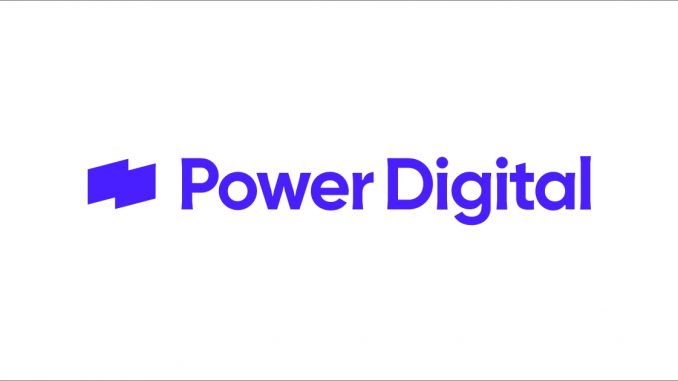
From Etsy to Amazon and beyond, there are more eCommerce channels than ever, and each represents an opportunity to make your brand discoverable while generating sales. Beyond U.S. household names, there’s a whole world of international eCommerce.
And in this space, one company is king—Alibaba.1
What is Alibaba? It’s the world’s fastest-growing eCommerce platform, but it’s also a tech company, a hub for manufacturers, and a forum for C2C sales.
In this short guide, we will cover Alibaba’s vast network of goods and services and the ways U.S. businesses can take advantage.
Alibaba’s Many Revenue Streams
U.S. media outlets frequently refer to Alibaba as the “biggest company you’ve never heard of.”
Founded in 1999 by Jack Ma, Alibaba has experienced a meteoric rise from its roots in Hangzhou, China to its place in history as the biggest U.S. IPO. In 2014, Alibaba’s entry into the New York Stock Exchange raised $25 billion for the company.2
What does Alibaba do? It might be easier to list what it doesn’t. Alibaba’s strength lies in the diversity of its offerings.
The company wears many hats, including:
Next, we’ll take a look at the most interesting aspect for U.S. businesses seeking to establish a strong international presence—Alibaba’s different sales arms.
Alibaba’s eCommerce Channels
China boasts the world’s largest eCommerce market—and it’s only growing.
U.S. retailers interested in entering global markets are often curious about Alibaba’s eCommerce sites.
If you have heard anything about Alibaba, it may be that the site is rife with counterfeit goods that amount to more than 10 million misleading lists per day.3 This problem makes some U.S. consumers skeptical of the overall quality and veracity of goods on the marketplace.
But Alibaba is still an intriguing potential channel.
So, if you do choose to sell on Alibaba, what are your options?
Tmall Global
Tmall is China’s largest B2C marketplace, full-stop. With over 500 million buyers, there’s a vast network of potential consumers. The launch of Tmall Global makes it possible for international brands to access these shippers.
While you can easily navigate the Tmall global site in English, you will need to provide product descriptions in Chinese as well as implement Chinese-language customer support.
For these reasons, you could also consider using a Chinese agent to sell under a brand that already has an established store presence on Tmall.
AliExpress is quickly becoming Alibaba’s premier global online marketplace. With a website available in sixteen different languages, there’s a streamlined process for entering international markets.
This is perhaps the more straightforward option for U.S. brands seeking to enter the global marketplace without figuring out logistics details or navigating the challenges of multilingual marketing.
Similar to eBay, Taobao is China’s largest consumer-to-consumer marketplace.
However, small businesses can also create accounts and sell goods.
Since this site’s focus is largely on small businesses, this effort may not be worth it unless you’re absolutely sure your product will appeal to the Taobao user base.
Selling on Alibaba’s eCommerce sites
Is it worth it to sell on one of Alibaba’s sites?
To make your decision, it’s important to understand Alibaba’s requirements and fee structure.
Requirements for Selling
To prevent counterfeits and ensure high-quality goods, Alibaba’s sites will generally require the following information:
The verification process usually takes two days. After you’re approved, you’ll need to provide:
As with U.S.-based sales platforms, a failure to comply with the terms of service could result in the termination of your account.
Startup Costs and Referral Fees
U.S. brands used to selling on Amazon can easily test out the platform without startup costs (aside from learning to navigate its unique structure and requirements).
Amazon charges a set fee of 0.99¢ plus a referral fee of 8-15% for businesses selling less than 40 items per month. If you’re selling more, business plans cost $39.99 per month.6
In contrast, you’ll almost always pay an initial transaction fee when selling on an Alibaba subsidiary.
Besides the cost of startup fees, consider other hidden costs, including:
The Pros and Cons of Alibaba
While there’s definitely a cost to selling and marketing on Alibaba’s channels, weigh your investment against the pros and cons.
Benefits on Alibaba
A successful strategy on AliExpress or Tmall can help you grow your global presence.
You’ll enjoy benefits like the following:
Challenges of Alibaba
After paying your storefront fee, you aren’t necessarily guaranteed sales.
Alibaba is a crowded marketplace filled with low-cost goods from China and around the world. You’ll need to sell at competitive prices and offer free shipping to compete. Likewise, the platform requires you to provide thorough customer service support across any differences in time zone or language.
If the resources you need to sell on Alibaba eat into your profit margins, consider whether you’d see more success by investing in your domestic and international marketing.
If you’re determined to expand your digital footprint with Alibaba, you can always hire extra support to make sure you start off on the right foot.
Power Digital Marketing’s Strategies for Global Growth
As a business owner, you’re likely selling in more than one place.
Besides your own web store, options like Instagram Shopping, Amazon, and Alibaba provide unique opportunities to connect with customers. Unfortunately, each one requires its own marketing.
The team at specializes in 360-degree strategies that create a unified brand voice across multiple sales channels. Whether your goal is to ramp up your conversions on social media or catapult to the top of Amazon product rankings, we’re here to help you achieve growth.
Get in touch today to learn more.
Sources:

Leave a Reply